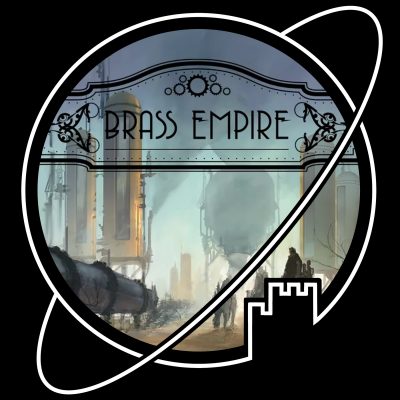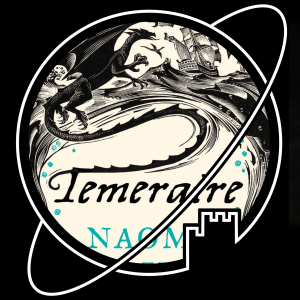- Board game developed by Mike Gnade
- Illustrated by Declan Hart
- Published by Rock Manor Games
- Published in 2016
- Deck building card game, 2-5 players
- Playing time: 30m-1h per game
In this steampunk themed tabletop deck-building game, you take control of a corporation, build your deck from lowly clarks and construction workers by recruiting skilled employees and blueprints for powerful airships and useful buildings, and battle your opponents for the ever-diminishing pile of brass in the center of the table!


Brass Empire is a relatively straightforward deckbuildinger: you start with a small deck of relatively weak cards. You use them to acquire better cards. After you’ve used your entire deck, you shuffle it and the newly acquired cards together and start drawing it again. As the game goes on and your deck improves, you’ll be able to buy even better cards and buildings to add to your deck. It is then that you start thinking about removing the weaker cards from your deck so you’ll draw the better ones more often. And then, you’ll try to overpower your opponent and destroy their factories by playing tanks and airships, earning brass victory points along the way.
Sometimes when you finish a board game for the first time, your first instinct is to immediately shuffle the cards and try again, because you feel like you learned so much in a single playthrough. Brass Empire is like that. When you first start it all feels complex, but a couple of turns in you start seeing the patterns, and as you upgrade your deck and start drawing your upgraded cards, there is great satisfaction in feeling your power grow. By the end of the game, you’ll be sad that it’s over, but also hyped up to try again and outdo yourself.
The game’s steampunky theme is cool, but the card art, whilst it has cool steampunk inspiration, is very much hit and miss. For example, this game doesn’t look near as good as Scythe, a game with a similar theme.
In addition, while it shouldn’t matter too much for friendly games, I feel the game is not exactly balanced. Two factions stand out: the faction that draws more cards and therefore cycles through the deck quickly and the faction that removes the weaker cards from your deck, makes its smaller, and therefore allows you to get to the stronger cards more often feel a lot stronger than the others.
I enjoyed the game a lot the couple of times that I played it, but I have to admit that I am not very familiar with other games in the genre – I know that Dominion is both the genre originator and a fan favourite, so I’d have to play that one at least to compare. Take what I say with a grain of salt!











